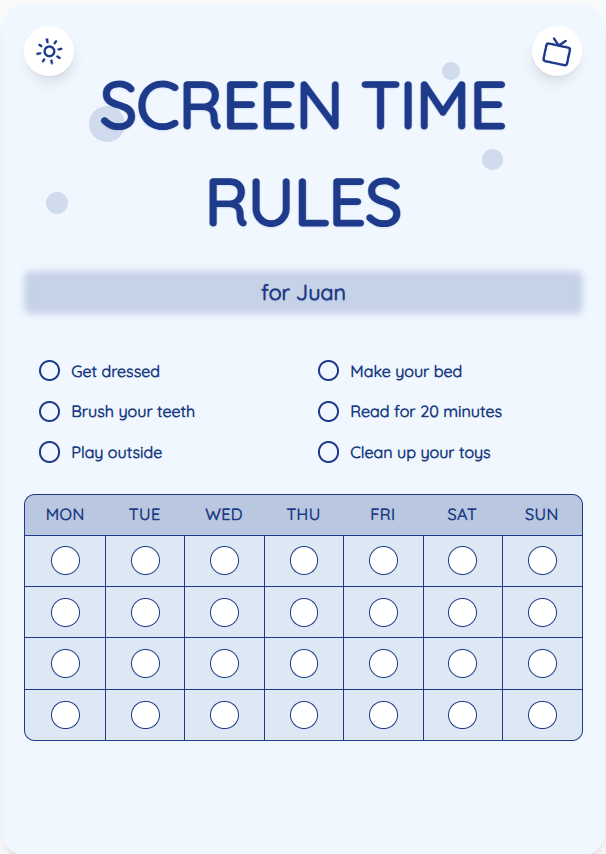Exploring the Connection Between Screen Time and Dopamine in Children
As a parent, understanding how screen time affects your child's dopamine levels is crucial for their well-being. In this guide, we delve into the impact of excessive screen time on dopamine production and provide actionable tips to manage it effectively.
See What Your Screen Time Chart Will Look Like
Here's an example of a beautiful, customizable screen time rules chart you can create for your family

The Role of Dopamine in Child Development
Dopamine is a neurotransmitter that plays a key role in the brain's reward system. It is associated with feelings of pleasure, motivation, and reinforcement. In children, dopamine levels can be influenced by various factors, including screen time.
How Screen Time Affects Dopamine Levels
Excessive screen time, especially when it involves highly stimulating content such as video games or social media, can lead to an overstimulation of the brain's reward pathways. This constant flood of dopamine can desensitize the brain's receptors, leading to a potential decrease in dopamine sensitivity over time.
Put These Tips Into Action
Create a custom chart to implement these strategies with your child
Practical Tips for Managing Screen Time and Dopamine Regulation
1. Set clear screen time limits using a Screen Time Chart to help your child understand and adhere to boundaries. 2. Encourage alternative activities that promote dopamine release in a healthy way, such as outdoor play or creative hobbies. 3. Create tech-free zones in your home to reduce overall screen time exposure. 4. Engage in screen time activities together as a family to promote bonding and monitor content.
Practical Tips for Success
- Use a screen time chart to establish consistent limits
- Encourage physical activity and outdoor play
- Offer non-screen alternatives for entertainment
- Lead by example and practice mindful tech use
Frequently Asked Questions
Can all screen time have a negative impact on dopamine levels?
Not all screen time is equal. Interactive educational content or quality programming can have positive effects on children's cognitive development without necessarily causing dopamine dysregulation.
How can I tell if my child's dopamine levels are affected by excessive screen time?
Signs of dopamine dysregulation may include difficulty focusing, irritability when screen time is limited, and a reduced interest in non-screen-related activities.
By understanding the connection between screen time and dopamine regulation, you can make informed decisions to promote a healthy balance for your child. Visit ScreenTimeRules.com to create personalized screen time charts and start implementing positive screen time habits today.
Ready to Transform Your Family's Screen Time?
Join thousands of parents who have successfully managed screen time with our customizable charts.
